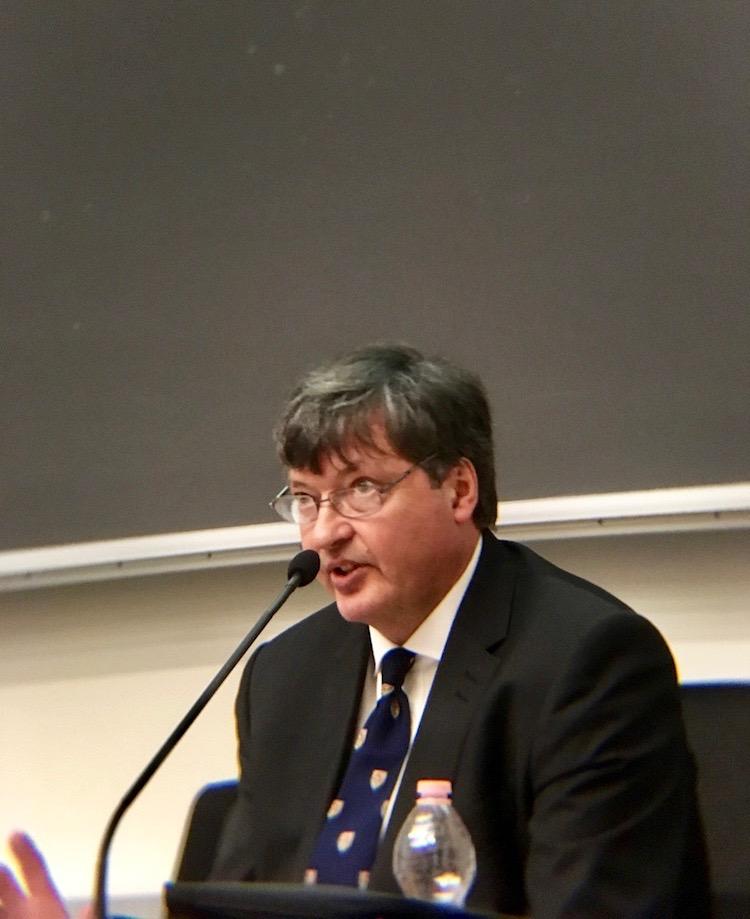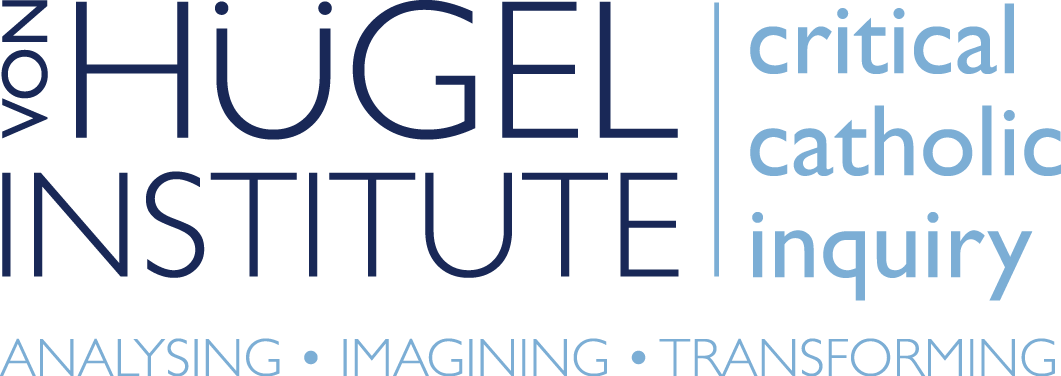
The following is a report by VHI Research Associate Dr Roman Cholij, concerning a recent trip to Rome in which he presented on his research into the themes of genetics and intellectual property law at the Pontifical Gregorian University.
On 19 November 2016 I presented a paper and led discussions in Rome on the theme of ‘Genetics and Intellectual Property’ viewed from the perspective of the Christian intellectual tradition.
The event took place at the Pontifical Gregorian University (‘PUG’) - the world’s first Jesuit University - and was organised by the Scuola Sinderesi, part of the University’s Centre for Faith and Culture named after Alberto Hurtado, a Chilean Jesuit priest, lawyer and champion of social justice (canonised by Pope Benedict XVI). My presentation was attended by a mix of students of law, political science, economics and philosophy, and professionals - including lawyers, public officials and at least one diplomat.
The Sinderesi school is devoted specifically to the consideration, within the context of religious faith, of ‘practical reason’ (which is the meaning of ‘synderesis’ in scholastic philosophy). The lecture was part of a year-long themed lecture series entitled“Christian discernment before contemporary social challenges – processes of globalisation”.
This was the second year running that a member of the VHI had spoken at the PUG. In November 2015 Professor John Loughlin, then Director of the Institute, also contributed to a themed lecture series of the Scuola Sinderesi, thereby setting a precedent for future invitations.
My own invitation to speak followed on the success of the international ‘Patents on Life’ conference hosted by the VHI, in collaboration with the Murphy Institute for Catholic Thought, Law and Public Policy, of the University of St Thomas, Minnesota, in September 2015. The conference was an interdisciplinary event that brought together academics, NGOs, the Vatican, religious leaders and representatives of various faiths, industry, judges and lawyers. This was a first-of-its-kind forum in the UK to allow interdisciplinary and different stakeholder exchanges on the purpose, limits and influence of patenting in areas of biological research and human intervention that touch on morality, social justice and human dignity.
The purpose of my lecture was to demonstrate that Intellectual Property (‘IP’) is a subject that religious thinkers and students of ethics need to engage with. In particular it is something that is most definitely on the radar of the Catholic Church, and is part of the language of its magisterial teaching and of catholic social doctrine. For example, on 23 September 1999 Pope John Paul II wrote “the Catholic Church … has a moral vision of what the good of individuals and of the human family demands. She has consistently taught that there is a “social mortgage” on all private property, a concept which today must also be applied to “intellectual property” and to “knowledge”. The law of profit alone cannot be applied to that which is essential for the fight against hunger, disease and poverty” (Message of the Holy Father to the Group Jubilee 2000 Debt Campaign). Ten years later, Pope Benedict XVI, in his encyclical Caritas in Veritate (29 June 2009, §22), in the context of the ever growing distance between rich and poor, developed and developing countries, noted “On the part of rich countries there is excessive zeal for protecting knowledge through an unduly rigid assertion of the right to intellectual property, especially in the field of health care”.
My presentation examined the role of Intellectual Property from a Christian ethical perspective in two different but related areas.
The first half of the paper, entitled ‘The Protection of Genetic Resources through patents and its Global context’ was devoted to social issues that surround the use and abuse of natural genetic resources and indigenous traditional knowledge, and looked at the role of patents in this. The question posed was whether or not the patent system could or should be used or modified so as to be explicitly in the service of social justice. Genetics in this instance was understood as living matter encoded by genes from whole organisms to microbial and sub-cellular components. This is an area in which the Holy See has been involved and which involves issues of social justice in the developing world.
Part two of the paper, entitled ‘Life patents’ looked at the biotechnology industry, giving some history and background, the role of patents in building up this industry, looking at what patent ownership means and whether we can really speak, as some do when attacking life patents, of ‘ownership of life’ through patents. The paper looked at objections to patenting and patent law morality exclusions. Specific subject matter included DNA sequencing, the Human Genome Project and its further developments, genetically modified (GM) seeds and GM food, and a critique of some interventions by religious authorities on the issue of patents on life.
The main conclusion of the paper was that despite the various controversies that were mentioned and discussed, Intellectual Property protection through patents and genetic research and experimentation that is beneficial to mankind can be fully embraced by a conscientious Christian, and falls within the parameters of the Social Doctrine of the Catholic Church.
Following the paper and discussions many of the participants joined the organisers and lecturer for an evening of conviviality in the Roman tradition of the ‘cena di amicitia’. My Rome experience was closed with attending a Papal mass in St Peter’s Square, with Pope Francis (whom I had quoted freely in my talk), this visit having coincided with the ending of the ‘Jubilee Year of Mercy’.
My thanks go to Monsignor Samuele Sangalli and his assistant Ms Antonella Piccinin for a stimulating and hospitable weekend.
The paper ‘Genetics and Intellectual Property’ will be made available following publication as a book chapter in late 2017.
The paper presented in November 2015 by Professor John Loughlin, “Human Dignity: the foundation of human rights and religious freedom" has just been published in A Changing Humanity, edited by Samuele Sangalli (December 2016).
~ Roman Cholij


